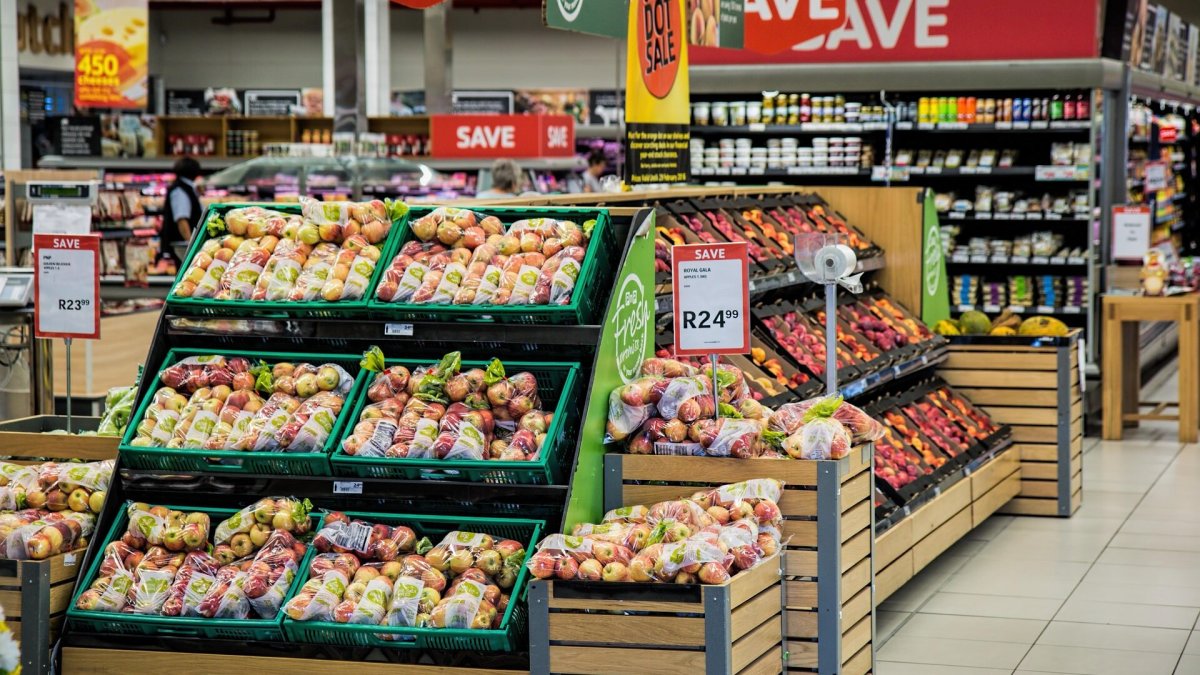- A popular regional grocery chain is closing unexpectedly.
- If some of the chain’s locations are not replaced, it will create a food desert.
- The chain’s owners hope to sell the stores.
When a grocery store closes in a market that has multiple supermarkets, it’s a minor annoyance. People might lose access to their favorite chain, but they will still have places to shop.
When the only grocery store in a market closes, that can be a disaster for residents.
That actually happened in the New Hampshire town where my family has a vacation home. The local Market Basket closed, making boutique (and very expensive) stores the only grocery options in a 20-30 minute radius.
A new Stop & Shop eventually moved in, but for around two years, residents had no easy access to produce or full-line grocery-store prices.
That’s something the Richmond Times Dispatch wrote about in a 2019 editorial.
An estimated 1 million Virginians live in so-called food deserts — areas with no grocery stores within one mile in urban regions and within 10 miles in rural communities. Nationally, that figure is estimated at a dangerously high 37 million, according to the U.S. Department of Agriculture.
That’s about 11 percent of the country’s population, a distressing figure two decades into the 21st century. People who live in communities where it’s hard to find affordable, fresh food face higher risks for obesity, diabetes, and heart disease.
Richmond Times Dispatch
This isn’t a problem that has been solved, and it’s about to get worse, as one regional grocery chain has abruptly decided to close its doors.
Hitchcock’s is closing all its stores
Some grocery chains were built around serving markets where bigger players like Kroger, Albertson’s, and Publix did not want to go. That’s how Hitchcock’s grew into a major regional player.
“Hitchcock’s recognized the need for rural towns in Central Florida to have clean, well-stocked, quality products and service driven food stores and opened their first store in 1945. The Hitchcock’s company continued to grow over the years to locations located across the central part of Florida. Today, we are all about offering only the highest quality foods at competitive prices, clean stores and with friendly well trained and knowledgeable employees,” the company shared on its website.
Now, without warning, the chain has decided to close all of its locations.
“You may think it’s business as usual at the Hitchcock’s Market in Keystone Heights, but that’s until you get to the door and see this sign thanking customers for more than 80 wonderful years,” Florida’s WCJB reported.
The shutdown is not limited to that location.
The owners of Hitchcock’s Markets are planning to close all of their locations.
WCJB
Many Hitchcock’s stores are holding 30% off sales and plan to close at the end of October. Some locations will reopen about a month later under the Winn-Dixie brand.
Workers have not learned whether they will be offered jobs by Winn-Dixie.
Related: 71-year-old ice cream and burger chain closing final location
The owners have not given a reason for the closure, nor have they said which locations will open under Winn-Dixie or other brands.
They plan to sell every location, but those plans have not been finalized.

Pixabay.
Hitchcock’s Markets: timeline
- 1945: Bob Hitchcock and his father opened the first Hitchcock’s Market in Alachua, Florida, aiming to provide quality groceries to rural communities.
- 1977: The original store was replaced with a modern supermarket building at the corner of Main and US 301 in Alachua.
- 1979: Bob Hitchcock passed control of the business to his son, Alan Hitchcock, who expanded the chain by opening additional stores in Archer, Jasper, Trenton, Williston, and Newberry.
- 2001: Hitchcock’s acquired several stores from the defunct Miller’s Supermarket chain, further expanding its presence.
- 2008: Alan Hitchcock sold the chain to Haug Enterprises, an affiliate of SuperValu.
- 2013: A new 26,000 square-foot full-service grocery store, including a pharmacy, was built in rural Dixie County, Florida, to replace a run-down 30-year-old building.
- 2019: The Alvarez family acquired Hitchcock’s Markets from Haug Enterprises.
- 2020: Hitchcock’s opened a new store in St. Petersburg, Florida, in a former Lucky’s Market location.
- 2022: The St. Petersburg store closed after less than two years of operation.
- October 2025: The Alvarez family announced plans to sell all 10 Hitchcock’s Markets locations across North Central Florida to various grocery chains, with some transactions already finalized.
Source: albertsonsfloridablog.blogspot.com
Food deserts remain a significant problem
Hitchcock’s serves markets that have limited other options for consumers. That means if buyers can’t be found, it could put more people into a food desert.
“We have food deserts in our cities. We know that the distance you live from a supplier of fresh produce is one of the best predictors of your health. And in the inner city, people don’t have grocery stores. So we have to figure out a way of getting supermarkets and farmers markets into the inner cities,” shared Michael Pollan, the Knight Professor of Science and Environmental Journalism at the UC Berkeley Graduate School of Journalism, according to Quote.org.
This is a problem even former First Lady Michelle Obama was not able to solve.
“Our goal is ambitious. It’s to eliminate food deserts in America completely in seven years,” she shared with PBS back in 2010.
Back then, 23.5 million Americans lived in areas without supermarkets or other places where they can access fresh, nutritious foods. To change the situation in these areas — known as “food deserts,” Obama called for action.
“This is happening all across the country. We’re setting people up for failure if we don’t fix this,” she added.
#80yearold #grocery #chain #closing #locations #unexpectedly